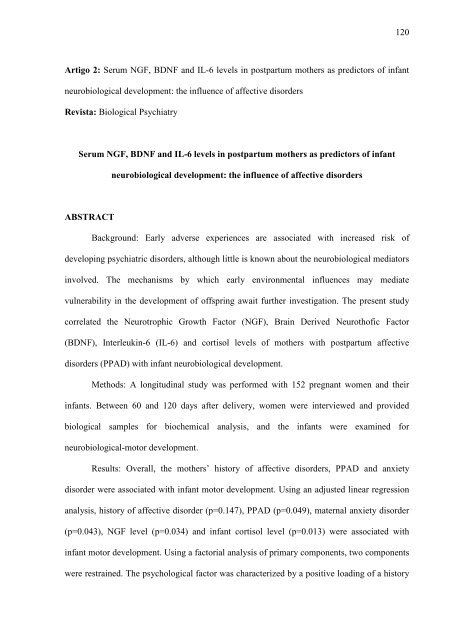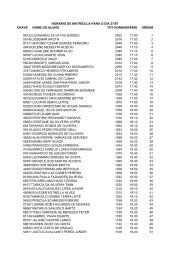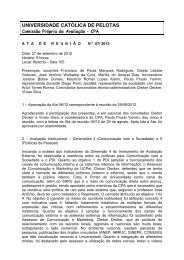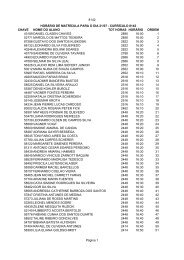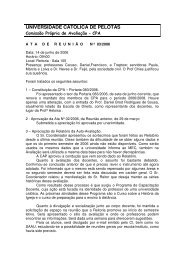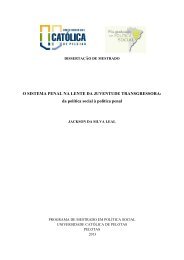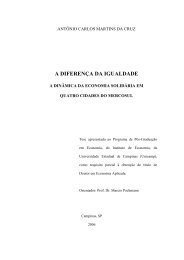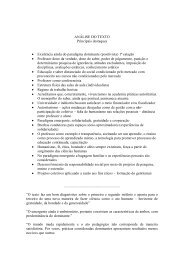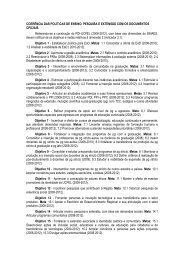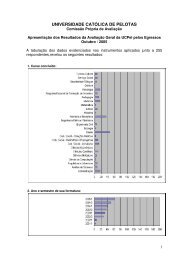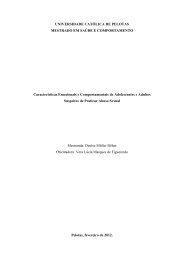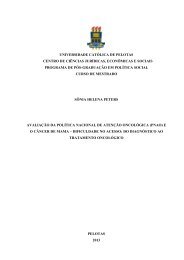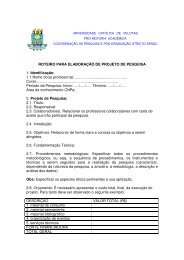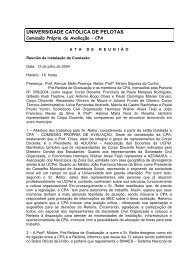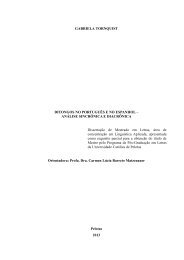Karen Amaral Tavares Pinheiro - Universidade Católica de Pelotas
Karen Amaral Tavares Pinheiro - Universidade Católica de Pelotas
Karen Amaral Tavares Pinheiro - Universidade Católica de Pelotas
You also want an ePaper? Increase the reach of your titles
YUMPU automatically turns print PDFs into web optimized ePapers that Google loves.
120<br />
Artigo 2: Serum NGF, BDNF and IL-6 levels in postpartum mothers as predictors of infant<br />
neurobiological <strong>de</strong>velopment: the influence of affective disor<strong>de</strong>rs<br />
Revista: Biological Psychiatry<br />
Serum NGF, BDNF and IL-6 levels in postpartum mothers as predictors of infant<br />
neurobiological <strong>de</strong>velopment: the influence of affective disor<strong>de</strong>rs<br />
ABSTRACT<br />
Background: Early adverse experiences are associated with increased risk of<br />
<strong>de</strong>veloping psychiatric disor<strong>de</strong>rs, although little is known about the neurobiological mediators<br />
involved. The mechanisms by which early environmental influences may mediate<br />
vulnerability in the <strong>de</strong>velopment of offspring await further investigation. The present study<br />
correlated the Neurotrophic Growth Factor (NGF), Brain Derived Neurothofic Factor<br />
(BDNF), Interleukin-6 (IL-6) and cortisol levels of mothers with postpartum affective<br />
disor<strong>de</strong>rs (PPAD) with infant neurobiological <strong>de</strong>velopment.<br />
Methods: A longitudinal study was performed with 152 pregnant women and their<br />
infants. Between 60 and 120 days after <strong>de</strong>livery, women were interviewed and provi<strong>de</strong>d<br />
biological samples for biochemical analysis, and the infants were examined for<br />
neurobiological-motor <strong>de</strong>velopment.<br />
Results: Overall, the mothers’ history of affective disor<strong>de</strong>rs, PPAD and anxiety<br />
disor<strong>de</strong>r were associated with infant motor <strong>de</strong>velopment. Using an adjusted linear regression<br />
analysis, history of affective disor<strong>de</strong>r (p=0.147), PPAD (p=0.049), maternal anxiety disor<strong>de</strong>r<br />
(p=0.043), NGF level (p=0.034) and infant cortisol level (p=0.013) were associated with<br />
infant motor <strong>de</strong>velopment. Using a factorial analysis of primary components, two components<br />
were restrained. The psychological factor was characterized by a positive loading of a history


